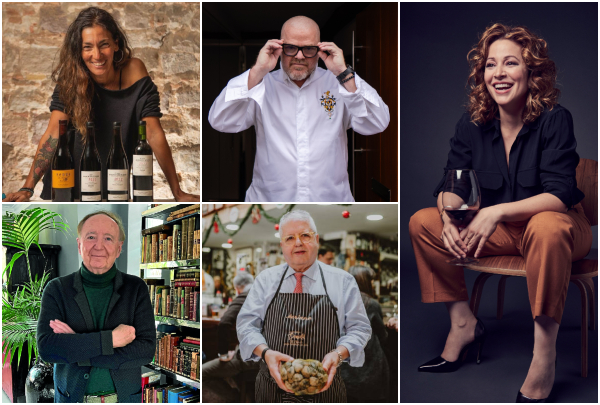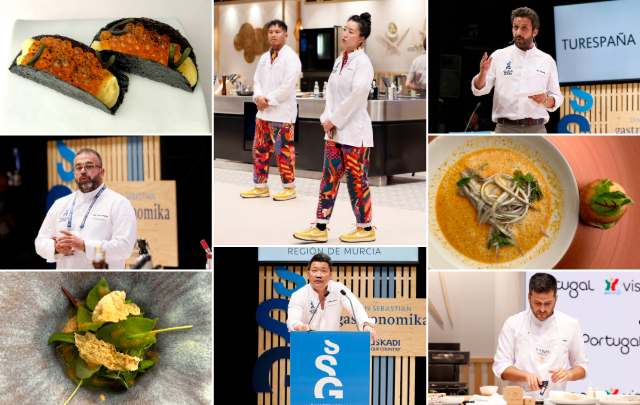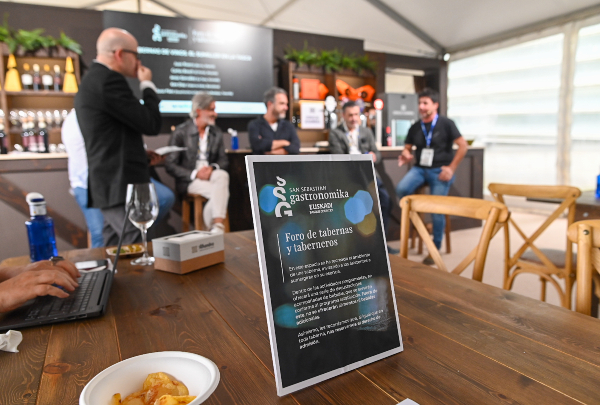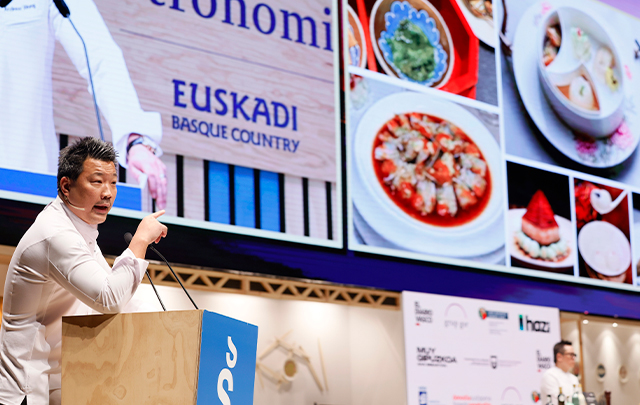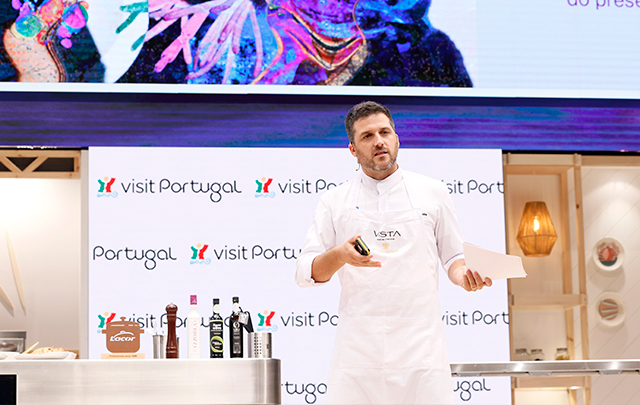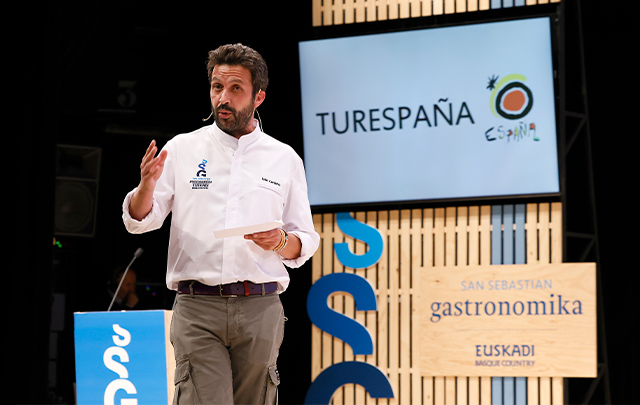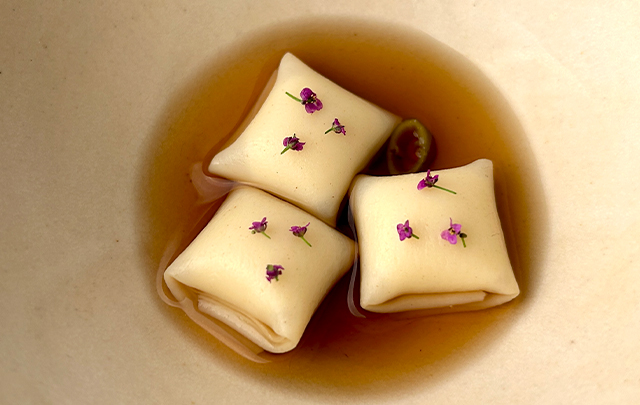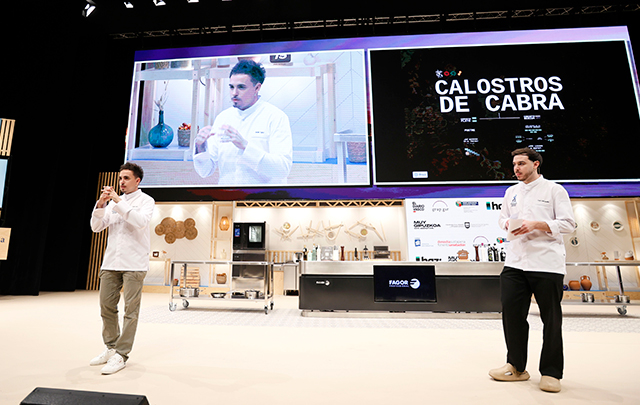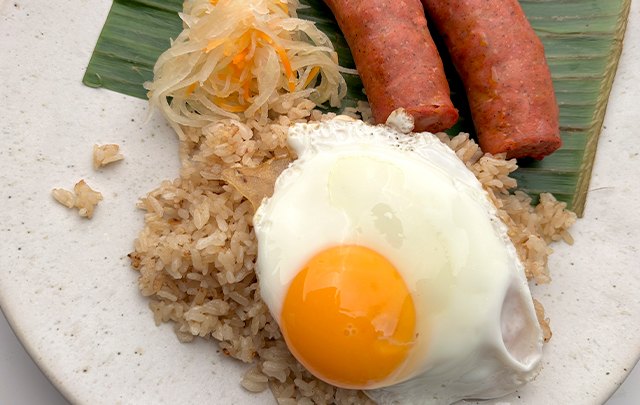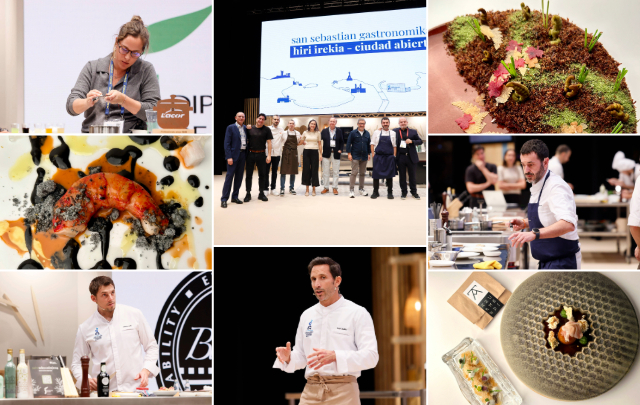News
Pepe Solla and his concern for the product
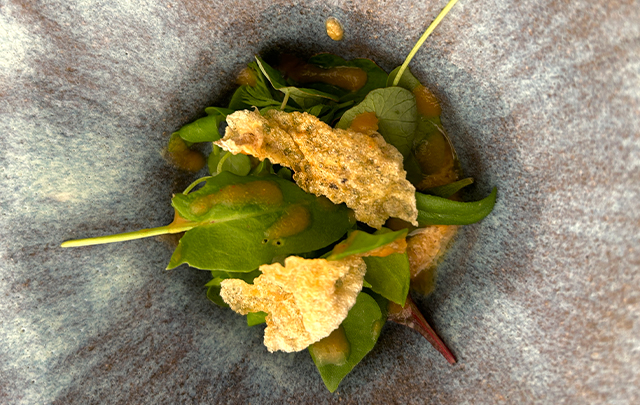
The Galician chef has confirmed the importance of working in the environment, whatever it may be, in order to achieve sustainability, which for him means caring for and respecting nature.
Casa Solla* (Poio, Pontevedra) has a 63-year history. It was a vital project of Pepe Solla's parents, but he has come to Donostia to talk about a very specific part of this restaurant, its product. He has done so on the basis of a reflection that is none other than that "young people are often more concerned with technique than with the product, which is a little sad. We look for excellence in the product, in this case the fish". Pepe Solla shared the stage with Roberto from Artesans da Pesca.
'Many young people come to our kitchens to learn more about the technique, but when the best product comes every morning, which is the essence of the restaurant in my way of understanding cuisine, no one comes to see a sea bass or that tear pea that we have in Galicia and that no one wants to peel, but whose sphere is much more perfect than the one we can make with any technique", explained Solla, before admitting that "we chefs are probably to blame for this, because we often worry about mastering the technique that has surprised us in another restaurant, but we often don't go to the producer to talk to him".
Much of the presentation revolved around two sea bass caught at the same time in the same place, perfect at first, but very different after a few days due to the method of death and bleeding they had been given. 'We can only make what nature gives us worse,' Solla reflected. 'We chefs have evolved a lot, a lot, but the great revolution to come is that of the producers, but we have to help them. What makes us different is the environment, the larder, and we must work on it so that chefs and kitchens are better. It is a selfish thing, because we will be the ones who benefit, but it is the producer.
What makes us different is the environment, the pantry, and we have to work on it so that the cooks and the kitchens are better. It is a selfish thing, because we will be the ones who benefit, but it is the producers who give us our identity and strength'.
Roberto, has clarified that a fisherman 'is an extractor, nature is the producer and we must respect nature with a good use of fishing gear'.
For this reason, he stressed that "an immediate reaction is important" when the fish has taken the bait and is caught.The fact that sea bass is not in season was mentioned as a problem. 'Why do we want them in July?' asked Solla. 'We talk a lot about sustainability, using as little plastic as possible or using reusable boxes, but we are the ones who are making nature unsustainable,' he reflected.
For his part, Roberto explained that he believes that 'in any relationship, there must be communication, trust and respect. If not, there is no relationship. It is also very easy to maintain this relationship with the producer and with nature. And in this case, we must treat the sea like we treat our refrigerator, because no one would think of emptying it and throwing food in the garbage". In the case of the importance of bleeding sea bass, Roberto believes that "it's a question of habit, although sometimes it's hard to do. But once you try it and understand it... At first it's a complication, but once you try it, the light bulb goes on, you get there and you recognise it. That's when you've really done a good job.
Solla left interesting reflections, such as that "the chef cooks his fears, even when we make a new dish. And the more confident we are, the more able we are to undress ourselves' or that 'what identifies us as Galician chefs is the environment in which we cook'.
Furthermore, as a conclusion, he pointed out that "each chef has to work in his environment: to reach this excellent sea bass, we have had years and years of collaboration. It is a chimera, but one day we should be able to ensure that what comes out on the plate is as exceptional as when I lived in the sea".

